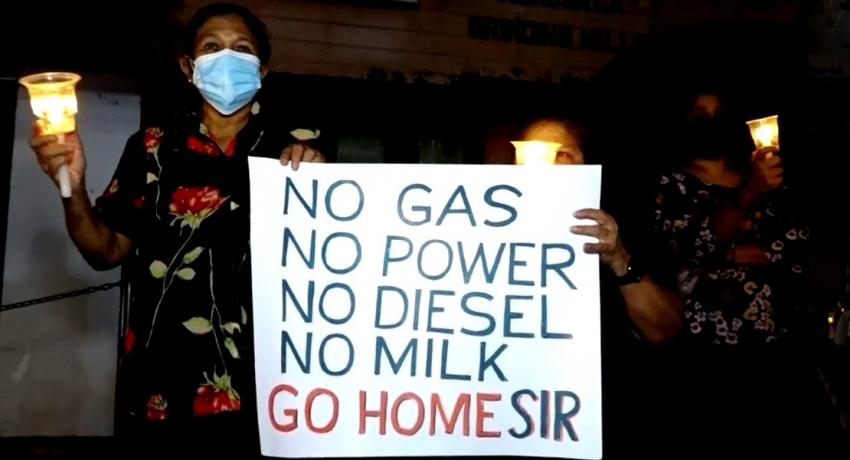Long queues can be seen in front of gas outlets and filling stations in Sri Lanka as the country faces hours of daily power cuts.
The United Kingdom has warned British citizens about the dire economic situation in Sri Lanka leading to a shortage of basic necessities like fuel, medicines and food.
Riddley Nugasinghe, a university student and activist, said there are shortages of gas, milk powder, fuel and cement.
“People are in long queues for hours to carry gas cylinders and some have had to return home with empty cylinders,” said Nugasinghe, who was in a queue for two days to buy gas in Colombo.
“The massive increase in fuel prices has caused a huge shock that ordinary people cannot bear. One of the main reasons is that foreign exchange has not been properly managed.”
Sri Lanka has been hit by a dollar issue and is struggling to pay for imports including gas, medicines, fuel and food.
“We worked hard to form this government. But the shortcomings are increasing day by day and the people have been subjected to a catastrophic fate like never before”
The Sri Lankan rupee has fallen 30 percent after the government allowed the currency to free-float last week.
The government has asked for advice from the International Monetary Fund (IMF) amid the worsening economic crisis.
Ven. Muruttetuwe Ananda Thera, chancellor of Colombo University, said Buddhist monks are ready to take the government on the right path or to send it home.
“We worked hard to form this government. But the shortcomings are increasing day by day and the people have been subjected to a catastrophic fate like never before,” he said.
Bishops and priests joined fishermen in Negombo on March 3 to demand protection of their livelihoods as they face a fuel shortage and higher prices.
A Catholic priest said the power cuts and fuel shortage have affected prayer services and other activities during Lent.
“There is a shortage of buses for children to go to schools and with the increase in bus fares many people are finding it difficult to go to work,” said the priest from Negombo who wanted to remain anonymous.
“This is not a situation that has arisen but a situation that has been created. At present, the government earns more than 750 million rupees a day from taxes on fuel”
The priest said children are studying using kerosene oil lamps, fishermen do not go to sea and factories are limiting production.
Lawmaker Udaya Gammanpila, who was sacked last week, said people were suffering in queues not for a necessary reason but because of the tactics of deliberately crashing the economy.
“This is not a situation that has arisen but a situation that has been created. At present, the government earns more than 750 million rupees a day from taxes on fuel,” said Gammanpila.
The government said it has written to the IMF seeking technical support to manage the economic crisis.
The government’s main opposition is to hold a massive demonstration in Colombo on March 15 evening against the multiple crises in the country.


